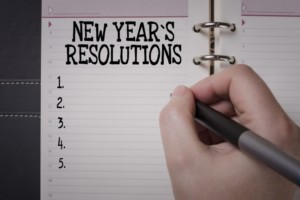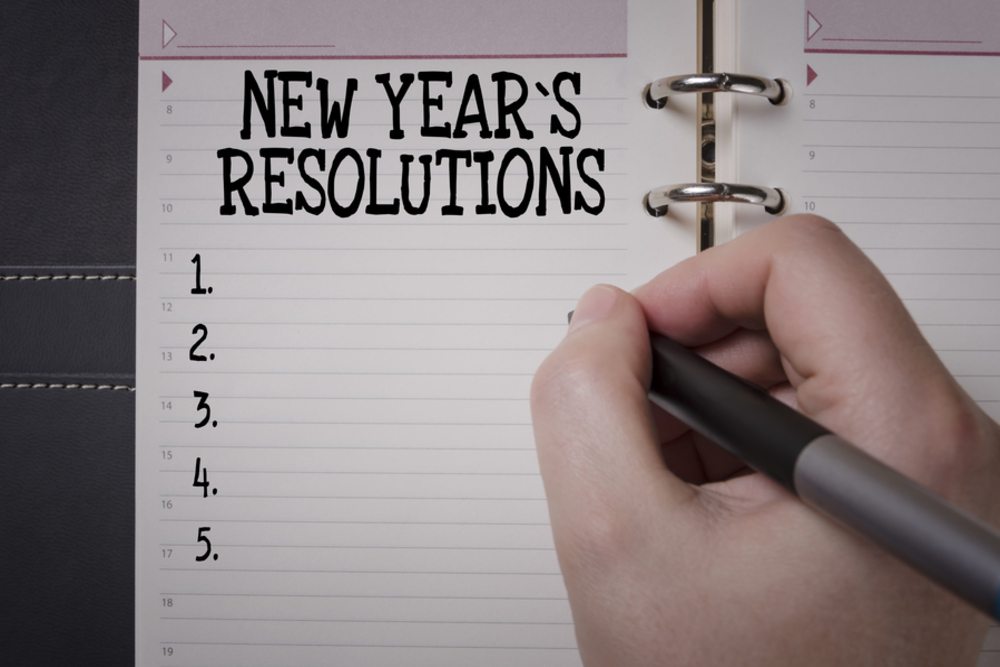 We all make New Year’s resolutions, but let’s be honest: Most are wishful thinking. By February, that “lose 20 pounds” or “learn Spanish” resolution has gone right out the window.
We all make New Year’s resolutions, but let’s be honest: Most are wishful thinking. By February, that “lose 20 pounds” or “learn Spanish” resolution has gone right out the window.
But not for you, new homeowner. This year is different.
Your first 12 months of homeownership set the tone for the entire journey. With just a few smart decisions, you can save money now and get more out of your investment later.
So make room on that list between “run a 5K” and “travel more.” Here are six essential New Year’s resolutions for new homeowners.
START AN EMERGENCY FUND
Homeownership has a funny way of costing more than you think. An emergency savings fund provides a financial safety net, and your new home is the perfect reason to start one.
Remember, if the furnace quits on a cold night, there’s no landlord to call. Laid off unexpectedly or surprised by major car repairs? Mortgage payments are still expected on time and in full. Without an emergency fund, these expenses could force you into credit card debt or worse.
Ideally, your emergency fund should cover several months of expenses, but it’s OK to start small. Set aside a portion of every paycheck with the goal of saving $500 as quickly as possible, and then contribute as much as you can moving forward.
TAKE A CLOSER LOOK AT YOUR HOMEOWNERS INSURANCE
Just because a standard homeowners insurance policy satisfied your lender doesn’t mean you’re adequately covered.
“Homeowners insurance isn’t one-size-fits-all. There are unique coverage options and, more importantly, `exclusions’ that homeowners need to be aware of,” says Ryan Andrew, president of The Andrew Agency, an independent insurance agency in Richmond, Virginia.
Does your policy cover the full cost of your jewelry or other valuables? Are disasters like earthquakes and floods excluded? Will the policy pay if your dog bites the new mailman?
“Your home is usually your biggest asset,” Andrew says. “Spend a few minutes reviewing your coverage and exclusions, and ask questions so you understand your policy.”
GET AN ENERGY EFFICIENCY AUDIT
Heating, cooling and powering a home isn’t cheap. Why be uncomfortable or spend more because your house wastes energy?
After the dust settles, you may notice more about your home, particularly if you bought new construction, says Jessie Ferguson, director of operations at Renewablue, a home energy consulting company. Maybe the air smells funny or one bedroom is colder than the others. She recommends getting an energy efficiency audit rather than guessing at the problem.
Using blower door tests and infrared cameras, energy audits measure air leaks and detect air infiltration or missing insulation. Audits are performed by utility companies, city governments and some contractors.
“An energy audit is an inexpensive way to get real information about your house. They’ll tell you which fixes will deliver the best bang for your buck,” Ferguson says.
In addition to lowering your utility bills and making you more comfortable, a more efficient home may end up putting free money in your pocket, thanks to local, state and federal rebates.
CONSIDER A HOME WARRANTY
If the appliances in your new home are near the end of their life cycles, a home warranty may help shield you from the cost of replacement.
Also called home service contracts, home warranties are annual agreements that offset the repair or replacement cost of major home components and appliances.
Approach home warranty companies with caution, however. Read customer reviews and avoid gimmicks that seem too good to be true. Like insurance policies, home warranties are full of fine print, and homeowners often fail to realize what’s excluded until they try to make a claim.
“They can be helpful in the first year of homeownership, when you have so many other things to think about and pay for,” Ferguson says of home warranties. “Just make sure you know exactly what you’re getting.”
CREATE A DISASTER KIT WITH A HOME INVENTORY
Your new home is your castle, but it’s not indestructible. A disaster kit that includes financial documents and a home inventory will speed up recovery if the unthinkable happens.
A home inventory can be as simple as snapping pictures of big-ticket items in your home, or you could record items, brands, original prices, ages and condition in a spreadsheet.
No matter which method you choose, a home inventory is the best way to make sure you have enough insurance coverage to replace your valuables, Andrew says.
Store the inventory, along with copies of your personal identification, credit card information, vehicle records and other important documents, in a fireproof safe or another place that’s easily accessible if you have to evacuate.
MAKE A PLAN TO BUILD EQUITY
Unless you bought your home with cash, it will be many years until you own it outright. Make plans now to build equity faster so you can unlock more benefits of homeownership even sooner.
Equity is a fancy word for “how much of your house is paid off.” Home equity is a valuable asset; accrue enough and you can use it to finance major renovations or pay off student loans.
You can build equity slowly just by making your monthly mortgage payments, or you can find ways to speed up the process. For example, take on smart home improvements or switch to biweekly payments to get “equity rich” even faster. -AP







